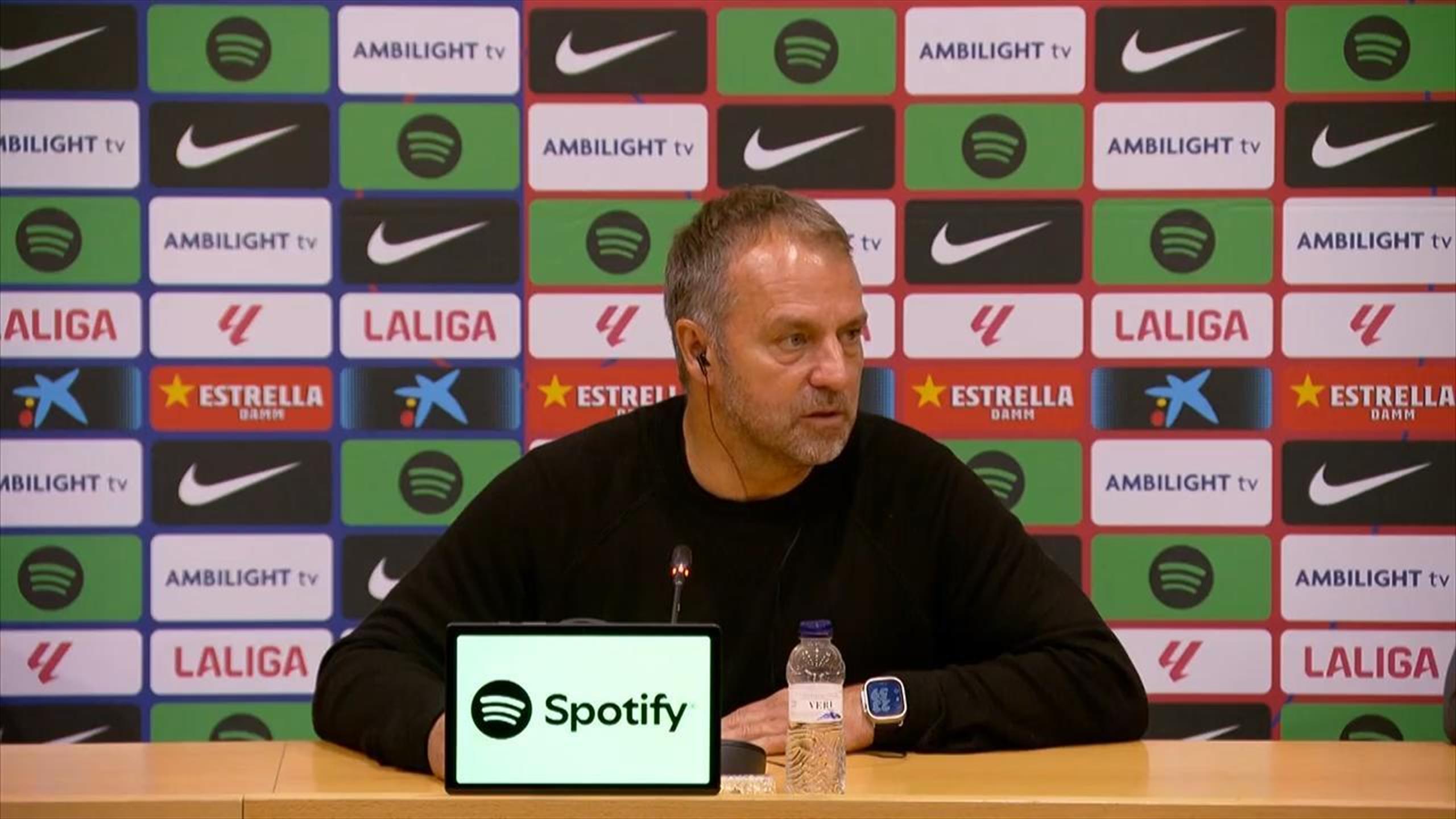
Barcelona's Fixture Chaos: A Deep Dive into Scheduling Controversies Amid Title Race
As the La Liga season nears its conclusion, FC Barcelona finds itself embroiled in a contentious debate over match scheduling that could have significant ramifications for their title ambitions. A recent statement from the club's management, led by head coach Hansi Flick, laid bare their frustrations with the Spanish Football League (LFP) regarding the tight turnaround times between matches. With the league title on the line and Barcelona in a fierce battle with Real Madrid, the implications of these scheduling issues are becoming increasingly pronounced.

Barcelona has been navigating a demanding schedule, playing crucial matches with only days apart—often against formidable opponents. Flick's discontent was highlighted in a press conference where he stated, "It’s unbelievable that we are forced to play just two days after the international break. This is not just about us; it’s about the integrity of Spanish football." His comments reflect a growing concern among managers in La Liga regarding player welfare and competitive fairness.
This season, Barcelona has amassed an impressive 73 points from 32 matches, currently placing them at the top of the La Liga standings. They have shown resilience on the pitch, including a thrilling comeback victory against Celta Vigo, but the physical toll from a congested fixture list could jeopardize their chances as they head into the final stretch of the season. Statistics reveal that Barcelona has played four matches in just ten days, a grueling pace that raises the specter of player fatigue and injuries.
The importance of player fitness cannot be overstated when assessing Barcelona's title aspirations. Key players like Robert Lewandowski and Raphinha have been pivotal for the team's attacking strategy. Injuries to these stars could spell disaster for Barcelona, especially as they also contend with commitments in the Copa del Rey and the UEFA Champions League.
In light of these challenges, Barcelona's management has announced plans to formally lodge a complaint against the LFP regarding their scheduling practices. They argue for a more considerate approach that acknowledges the demands placed on clubs competing across multiple competitions. As they aim for a historic treble—conquering La Liga, the Copa del Rey, and the UEFA Champions League—the stakes have never been higher.
Scheduling Conflicts and Player Performance
The ramifications of the current scheduling extend beyond merely logistical hurdles; they have a direct impact on player performance. A quick turnaround generally affects physical recovery, which in turn can impair performance levels and increase the risk of injury. "We need sufficient time for recovery; otherwise, we risk losing our key players at the most critical moments of the season," Flick added, underlining the precarious balance between success and player health.
Statistical analysis shows that during a congested schedule, teams often experience a dip in performance metrics, including reduced shot accuracy and increased defensive errors. Barcelona's recent matches have demonstrated the effects of fatigue, with their previous game against Osasuna showcasing moments of disorganization in both defense and attack.

Implications for the Title Race
The ongoing scheduling debate has broader implications for the competitive landscape of La Liga. With both Barcelona and Real Madrid vying for the title, the ability to effectively manage player rotation and recovery will be key. Real Madrid's Carlo Ancelotti has also voiced concerns, suggesting that the league's scheduling practices could disadvantage clubs actively competing for both domestic and European honors.
The competitive nature of La Liga means that teams must be at their peak performance, especially during the season's critical phase. While Barcelona leads currently, their grip on the title is tenuous, with Real Madrid closely trailing behind. The psychological pressure of maintaining form while also battling scheduling constraints adds another layer of complexity to an already intense rivalry.
According to a recent report by the Daily Mail, Barcelona's management emphasized that the scheduling not only affects their club but diminishes the overall integrity of Spanish football. “If we succeed on the European stage, it reflects positively on La Liga as a whole. It's time for the governing bodies to take notice,” they stated, advocating for a unified approach to scheduling that considers the interests of all clubs participating in multiple competitions.
The Future of Scheduling in La Liga
As Barcelona prepares to submit their formal complaint, the outcome may influence future scheduling practices within La Liga. The league has been under increasing scrutiny regarding its operational decisions, especially in light of the financial and competitive pressures faced by clubs.
The need for a more equitable scheduling system is becoming apparent, with many clubs voicing similar concerns to Barcelona's. The growing consensus is that the integrity of the league must be prioritized to ensure a level playing field for all teams. Without reforms, the risk of player burnout and competitive imbalance could significantly affect the quality and attractiveness of La Liga.
In conclusion, as FC Barcelona navigates this challenging period, the relationship between fixture scheduling and player performance will be critical. The club's management must advocate for changes that protect their players while maintaining their pursuit of glory in La Liga and beyond. With the title race heating up and the prospect of injury looming, the coming weeks will undoubtedly test the mettle of Barcelona and its coaching staff.
/wion/media/media_files/2025/04/19/E8tAmNllQ15OB1YXQiHW.jpg)